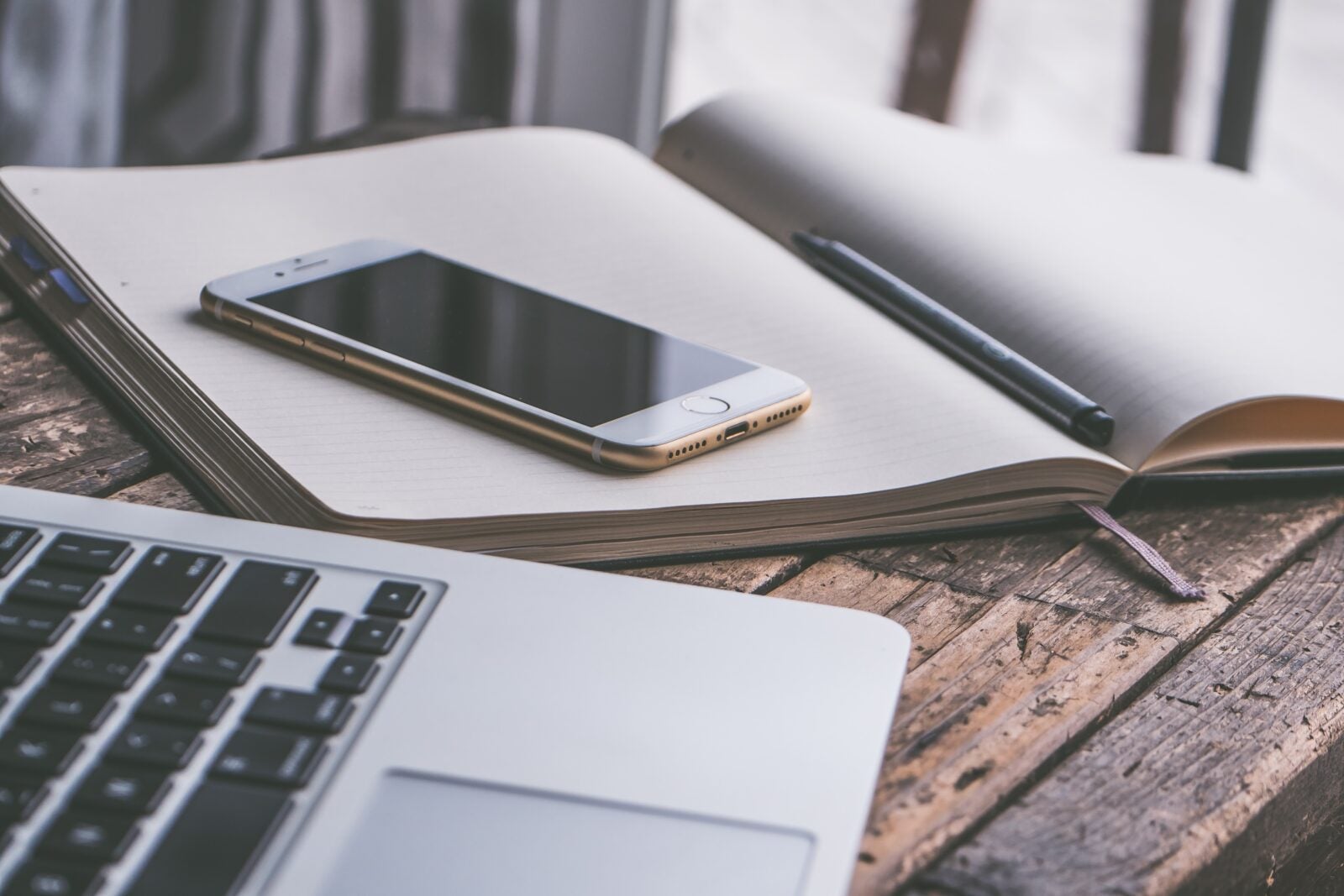Disclaimer: In Real Life is a platform for everyday people to share their experiences and voices. All articles are personal stories and do not necessarily echo In Real Life’s sentiments.
I went to an international school, and after graduating, I wasn’t sure what I wanted to do, so I followed in my sister’s footsteps and enrolled in mass communications.
Halfway through, I thought, “What am I doing here?” “I’m an introvert.”
Still, I finished the entire course, and went on to do an internship at a Malaysian newspaper company.
If there was ever a thing that could convince you NOT to pursue journalism, it would be doing just that. It was super dry, and it was basically just writing advertorials.

[source: jessica lewis creative on pexels]
But, for that one week, you can see people staying overtime (at the office), and everyone looks like they’re about to shit their pants.
I thought, “Well, I don’t want this enough for it to be worth it.”
The thing about journalism in Malaysia is that it is heavily censored. You’d really have to fight to break ground if you wanted to contribute anything.
“I had to think hard about what I could do regardless of the politics and boundaries that would limit my work; it would need to be something that I felt would help people. So I figured: healthcare.”
The Apple Doesn’t Fall Far From The Tree
I thought maybe medicine, but nah. My mom’s a midwife, and my dad’s a doctor. I guess we always end up doing what our parents are doing.
My mom was actually the one who suggested that I do physiotherapy.
“So in 2017, I went to MAHSA University to pursue my degree and started on a four-year journey to becoming a physiotherapist.”
When I first started the course, I had a vague idea of what physiotherapy was about. But the more I learned and practised it, the more I loved it.
Now that I’m working full-time as a physiotherapist, I can’t imagine doing any other job where I could feel more fulfilled.

[source: yan krukau on pexels]
It’s hard to say what you should or shouldn’t have done when you’re still figuring things out. Everything I’ve done so far has led me to where I am. I know now that I’m as happy as I’m going to be in any profession.
I feel like being in MassComm, you have to be up there! You need to be entertaining and charismatic.

[source: mikhail nilov on pexels]
Why I Prefer To Be A Physiotherapist, And Not A Doctor
People would come to you; on Day 1, they’re not able to walk or they’ve lost control of one side of their body; and you get to contribute by helping them get back with their lives. It’s really great.
Honestly, if you gave me the choice now of being either a doctor or a physiotherapist, I’d still choose to be a physiotherapist.
You get to spend so much time with your patients, and you can really see them go on that journey; you get to see them come out the other side of it. It’s very rewarding.
I don’t think I would want to become a doctor because they don’t get to spend as much time with their patients.
They spend probably 20 minutes with the patient, and then after that point, the patients are referred to a physiotherapist. I spend at least an hour with my patient, and I continue to see them a month to three months later.
I really get to know them and see them improve and progress. I get to see my contributions to their progress.
A Work That Feels Fulfilling & Rewarding
The most rewarding thing has been working with neurological cases.
I had one patient who had just recovered from brain tumour surgery. He came to us and couldn’t move half his body. In the very first session, I was literally on the ground, moving his legs for him, trying to guide him to walk.
It took him a month to recover. Now, he’s able to walk without a cane, and he can grip things.

[source: mart production on pexels]
Still, I’ve never seen him in a bad mood. No matter how boring or frustrating the session may get, he will find a way to amuse himself.
He would either make himself laugh, or he’ll make me laugh. I can’t imagine being in his position and having the attitude he does. It’s really great.
I’ve only been a physiotherapist for a year. Of course, the highs are high, but there are lows as well.
When I Mess Up…
It feels like absolute sh*t when I mess up. But, of course, you can’t mess up too badly, as a doctor would risk when they mess up.
It’s not exactly life or death, but it can still go terribly wrong. If a patient falls, it can result in serious injury.
Thankfully, I’ve not caused any injuries or mishaps to my patients. At most, I’d cause a patient to be annoyed.
Honestly, for me usually, it’s bad when I get overwhelmed with work. If there are too many people to see and I am unable to provide them with the care they deserve, they will be disappointed or discouraged. They may feel like nothing could help them…
Those days feel like crap.
What People Don’t Usually Know About Physiotherapists
I think a lot of people expect physiotherapy to be passive work.

[source: ryutaro tsukata on pexels]
I believe these people may be used to seeing chiropractors and other things where they go in, it’s *crack* *crack*, massage, and then they walk out, supposedly with their problems solved.
But physiotherapy requires active participation in one’s recovery.
The key to whether you recover or not lies in your motivation and belief in yourself.
The physiotherapist is there to encourage you and tell you what is safe or not safe for you to do. They serve as a guide along the way, and you must put in the effort.
I think a lot of people expect physiotherapy to just be a massage or, like, electrotherapy. Sure, we do muscle stimulation, but maybe only at the beginning of the session.
This is so that the exercises are easier for you to do initially, and then you can learn how to do them correctly and do them at home.
Also, physiotherapists have a lot of autonomy in terms of the treatments they suggest to patients. We’re kind of experts in our own rights. We do collaborate with doctors, but they’re not necessarily our bosses.
My advice to people who are thinking of pursuing higher education?
Take your time. There’s no need to rush into determining who you are or what you want.
Try your hand at as many things as possible or learn as much as you can about what your options are before you have to pick something to do for the rest of your life.
Some people know what they want to be since they are very young, while others do not.
If you’re the latter, it’s important for you to just take your time and figure out what fits you.

[source: ketut subiyanto on pexels]
When I was in Uni, people younger than me were my examiners. It kinda sucks because I know where I could be now if I had taken a beat to really figure out what I wanted.
Still, I am incredibly lucky to have been given the opportunity to start over. I owe that to the eternal patience, generosity and understanding of my parents.
I know that it is a luxury that most people wouldn’t have.
Do you know anyone with an interesting story to share? Drop us an email at ym.efillaerni@olleh and we may feature the story.
For more stories like this, read:
After 4 Years of Working as a Nurse in a Private Hospital, I’m Having “Compassion Fatigue”
You might also like
More from Real People
‘A RM100 fee cost a company 5 years of revenue’ shares M’sian
This story is about a Malaysian who learned that bureaucracy can be defeated simply by not arguing with it.A billing …
‘I quiet-quit, upskilled, and tripled my salary,’ shares M’sian engineer
This story is about a Malaysian who learned that loyalty without leverage leads nowhere in the corporate world.After years of …
‘I did everything right, and it still wasn’t enough’ shares M’sian graduate
This story is about a Malaysian graduate navigating big dreams in a job market where a degree no longer guarantees …


















